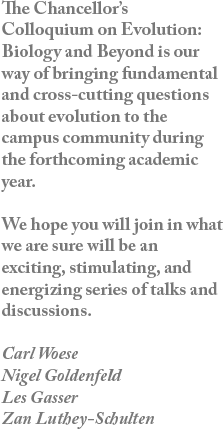Upcoming Events
April 27th
Jan SappProfessor, History of Biology, York University, Toronto, Canada
The New Foundations of Evolution: On the Tree of Life
4:00pm @ 101 Armory
Past Events
April 13th
Forest RohwerProfessor, San Diego State University
"Natural Selection" Revisited: Are There Really Winners in Evolution?
4:00pm @ Loomis 151
March 1st
Rudy RaffDistinguished Professor of Biology, Indiana University
Microbes and Fossils: Hunting the First Embryosbr />
February 17th
Ed DeLongDepartment of Biological Engineering, MIT
Illuminating the Microbial World: The Key to Understanding the Evolution and Ecology of the Living Earth System
November 2nd
Thomas Roy DaviesAuthor and BBC Producer, Director, and Writer
The Darwin Conspiracy
October 12th
Laura LandweberProfessor of Ecology & Evolutionary Biology at Princeton University
The Evolution of Cellular Computing: A Modern Take on Lamarckian Inheritance
September 30th
George DysonHistorian and Philosopher of Science
Von Neumann's Universe:
Computers & Beyond
September 29th
George DysonHistorian and Philosopher of Science
Darwin Among the Machines:
From Zoonomia to Artificial Life
Speakers
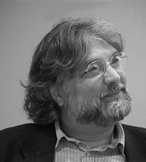 |
Jan SappProfessor, History of Biology, York University, Toronto, CanadaJan Sapp is professor of history of biology at York University, Toronto, Canada. He received his PhD at the Institut d'histoire et de sociopolitique des sciences, Université de Montréal in 1984. He subsequently held an appointment at the University of Melbourne for 8 years, where he also served as chair of the Department of History of Science. He was awarded an Andrew Mellon Fellowship at the Rockefeller University, 1991-92. He held the Canada Research Chair in the History of the Biological Sciences at l'Université du Québec à Montréal 2001-2003 before returning to York University where he has been a professor since 1992. His books include Beyond the Gene (1987), Where the Truth Lies (1990) Evolution by Association: A History of Symbiosis (1994), What is Natural? Coral Reef Crisis (1999), Genesis: The Evolution of Biology (2003), and The New Foundations of Evolution: On the Tree of Life (2009). |
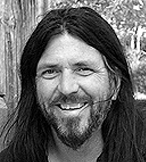 |
Forest RohwerProfessor, San Diego State UniversityForest Rohwer is a professor of biology at San Diego State University. He received his Ph.D. from the SDSU/UCSD Joint Doctoral program in molecular immunology studying Interleukin-2 signal transduction. He then moved to Scripps Institution of Oceanography and developed metagenomic approaches to study marine viruses with Farooq Azam. In 2002, he started his lab at SDSU, where the main areas of study are metagenomics and coral reef microbiology. Dr. Rohwer is a Fellow of the American Academy for Advancement of Science (AAAS) and the Canadian Institute for Advanced Research (CIFAR). In 2008 he received the Young Investigators Award from the International Society of Microbial Ecology. |
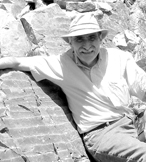 |
Rudy RaffDistinguished Professor of Biology, Indiana UniversityRudy Raff took his B. S. at Penn State in 1963, and a Ph.D. in Biochemistry at Duke University in 1967. He did postdoctoral work at MIT with Paul R. Gross in molecular developmental biology, and then joined the zoology faculty at Indiana University in 1971. He served as instructor-in-chief of the Embryology Course at the Marine Biological Laboratory, Woods Hole in the early 1980's. Raff is presently Distinguished Professor of Biology, and Director of the Indiana Molecular Biology Institute. His research centers on evolutionary developmental biology in marine embryos, and on the origins of animal life in the late Precambrian. To approach the events that produced the fossil record of development of the first animals, Raff studies the microbial processes by which embryos become fossilized. His work is divided between Indiana University and the University of Sydney, Australia. He is author of The Shape of Life (1996), which lays out the new discipline of evo-devo, and he is the editor of the journal, Evolution & Development. Raff is a fellow of the American Academy of Arts and Sciences. |
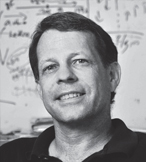 |
Ed DeLongDepartment of Biological Engineering, MITDr. DeLong received his Ph.D. from Scripps Institution of Oceanography at UC San Diego and completed postdoctoral training at Indiana University, Bloomington, where he did some of the first molecular studies of marine picoplankton. Dr. DeLong developed the first of the rRNA-based fluorescent hybridization probes, "phylogenetic stains," which identify by microscopy single cells phylogenetically. His work opened a new window for the identification and characterization of bacteria in nature. Dr. DeLong subsequently worked on the use of 16s RNA gene cloning and sequencing as a way of analyzing complex microbial communities in nature. He discovered marine archaea, planktonic and symbiotic. This work completely changed our image of the role of archaea in the biosphere. Using culture-independent molecular techniques, Dr. DeLong showed that archaea are very widespread and abundant in the world oceans. Another significant contribution has been Dr. DeLong's identification of anaerobic methane oxidizing bacteria. This work is showing that individual groups of microbes are metabolically versatile but in teams they can do almost anything that is thermodynamically possible. |
 |
Thomas Roy DaviesAuthor and BBC Producer, Director, and Writer
In a BBC career spanning 30 years, Roy Davies rose from a general trainee in London to write, produce and direct many acclaimed documentaries for the BBC2 network archaeology and history series Chronicle. He specialised in ground-breaking investigative historical documentaries that challenged popular beliefs. Roy was nominated for a BAFTA in 1982 as Executive Producer of the outside broadcast team which covered the raising of the Mary Rose, Henry VIIIs ill-fated warship. In 1985, Roy first produced and was then appointed editor of the history series Timewatch which he turned from a monthly magazine program into the single-program format which is now a household name in Britain. During his editorship of the series, Timewatch was nominated for an ACE television award (Award for Cable Excellence) in Hollywood in 1991. Two years later he was appointed Editor History Series in the new Documentaries department before becoming Head of Factual Programmes at BBC Wales in Cardiff. Roy retired from the BBC in 1995 to become a freelance writer and independent producer. |
 |
Laura LandweberProfessor of Ecology & Evolutionary Biology at Princeton University
Laura Landweber is a Professor in the Department of Ecology & Evolutionary Biology at Princeton University. She received her A.B. from Princeton in 1989 and her Ph.D. from Harvard in 1993 with Walter Gilbert and Richard Lewontin. Before starting her faculty position in 1994, she was a Junior Fellow of the Harvard Society of Fellows. She is an author of over 100 publications in molecular and evolutionary biology and editor of 3 books, ranging from Genetics and the Extinction of Species to DNA Based Computers. A recent recipient of the New York Academy of Sciences Blavatnik Award for Young Scientists (2008), she was also elected a Fellow of AAAS for probing the diversity of genetic systems in microbial eukaryotes, including scrambled genes, RNA editing, variant genetic codes, and comparative genomics in protists. Research in her laboratory combines multiple approaches -- from comparative genomics and bioinformatic sequence analysis to functional experiments -- to study biological information processing. She specifically focuses on early molecular evolution, the origin of genetic systems like the genetic code, and how cells and DNA solve complex biological problems, such as the creation and assembly of genes. |
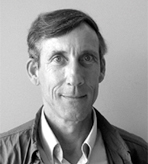 |
George DysonHistorian and Philosopher of ScienceGeorge Dyson is a historian of technology whose interests have included the development (and redevelopment) of the Aleut kayak (Baidarka, 1986), the evolution of digital computing and telecommunications (Darwin Among the Machines, 1997), and the exploration of space (Project Orion, 2002). Dyson, who lives in Bellingham, Washington, divides his time unevenly between building boats and writing books. He is currently writing (for Pantheon/ Penguin) what he describes as "a creation myth for the digital universe", based on the confluence of people, technology, and ideas surrounding the Electronic Computer Project at the Institute for Advanced Study in Princeton, NJ, between 1945 and 1956. |

